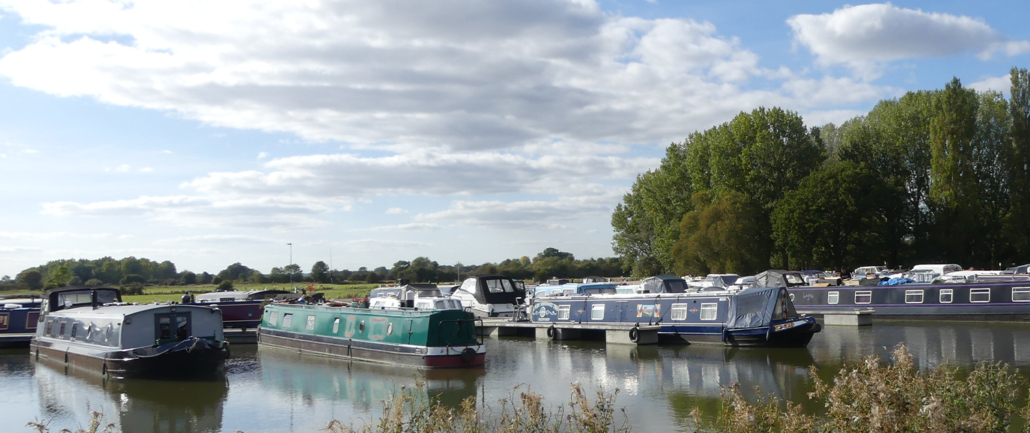Water Safety on Inland Waterways and Canals

Water safety on inland waterways and canals is crucial to your enjoyment when boating. As the weather gets warmer, it’s tempting to get into the water, rather than stay on it, but it’s not necessarily a good idea. Unfortunately, there are many risks lurking in and beneath the water, so here are good reasons to stay on board.
Water safety: Dangers of shallow water
Canals can be shallow in places, but you can’t tell this from the surface. If you jump in, you could seriously hurt yourself. Unfortunately, you could also cut or injure yourself on all sorts of rubbish that ends up in our inland waterways and canals. Shopping trolleys, broken glass, old bicycles or even motorbikes and other rubbish cause hazards to both people and wildlife.
You could also get tangled up in reeds or other aquatic plants. This could cause you to panic and have difficulty getting out of the water. In addition, some plants, like bullrushes, have sharp leaves that could cut your arms or legs, which can leave you susceptible to infection.
Water safety: Dangers of deep water
It is difficult to gauge how deep the water is, and refraction of light through water will make it look shallower. Even if you can see the bottom, you may not be able to stand up. If you can’t put your feet down, then getting out of a canal or a river with steep banks will be very difficult.
Water safety: Risks of infection
Any cuts or scratches in your skin can leave you susceptible to infection from water-borne diseases. Although very rare, it’s sensible to take precautions as they can be very nasty if left untreated. Weil’s Disease (leptospirosis) is one such disease, so here are some tips if you come into contact with canal or river water.
- Keep cuts or scratches covered up with a waterproof dressing, threat them with antiseptic if they do get wet.
- Have a shower if you do fall in
- Wash wet clothing
- If you develop flu-like symptoms within two weeks, see a doctor and raise the possibility of Weil’s Disease
Blue-green algae occur naturally in our waterways – in canals, rivers, lakes and reservoirs. They are a type of bacteria, called cyanobacteria, which can produce toxic chemicals. It is more of a problem in long spells of hot, dry, weather and looks like a green or slightly turquoise scum on the surface of the water. The toxins produced by blue-green algae are harmful to both humans and animals. They can cause skin irritations, vomiting, diarrhoea, fever and joint and muscle pain. If you do come into contact with water that you suspect contains blue-green algae, follow the guidance above, and if you feel unwell, seek medical advice immediately.
Water safety: Cold water shock
Jumping into cold water, especially on a hot day, can cause cold water shock. Your blood rushes to protect your vital organs, which means that there is less blood in your limbs and muscles, so they fatigue very quickly and can lead to drowning. In severe cases, it can cause a sudden increase in heart rate or blood pressure, which can be fatal.
Of course, it’s also important not to fall in by accident. Here are some tips to help you avoid some of the most common reasons that people fall in to canals and inland waterways while boating.
- Don’t try to jump from the boat onto the bank
- Wear non-slip shoes while on your boat
- Use grab rails
- Look out for trip hazards on the bank, such as bollards, mooring ropes or holes
Wear a life jacket, so if you do fall in, you’re less likely to be submerged and are able to get out of the water more easily.
Boating on our inland waterways and canals is all about relaxation and having fun. We hope that these water safety tips will help you to stay safe and enjoy the peace and tranquillity that our waterways offer.
This is a marketing article from Assist Insurance Services, one of the UK’s leading providers of insurance for Narrowboats, Barges, Livaboards, Widebeams, Inland Waterways Boats, Jet Skis, Motor Cruisers. Yachts, Speedboats, Ribs & Dinghies. If you would like to insure your boat, please contact one of our boat insurance specialists on 01604 946779. To remain up to date about similar topics and news from Assist Insurance Services, please like and follow us on Facebook, Twitter and LinkedIn.




